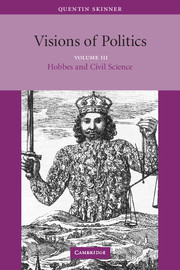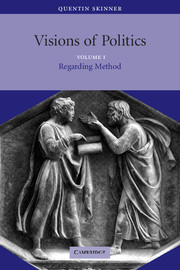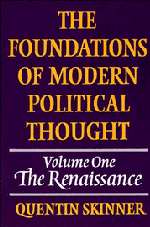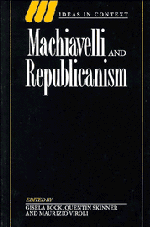Visions of Politics 3 Volume Set
A collection of essays by Quentin Skinner, one of the world's leading intellectual historians. Divided into three volumes, they include some of his most important philosophical and methodological statements written over the past four decades, each carefully revised for publication in this form. In a series of seminal essays Professor Skinner sets forth the intellectual principles that inform his work. In the first volume he considers the theoretical difficulties inherent in the pursuit of knowledge and interpretation, and elucidates the methodology which he will use in the two successive volumes, which deal respectively with the political thought of the Italian Renaissance and with the political thought of Thomas Hobbes. Professor Skinner's work is characterised by philosophical power, limpid clarity, and elegance of exposition; these essays provide a fascinating digest of the development of his thought.
Professer Skinner has been awarded the Balzan Prize Life Time Achievement Award for Political Thought, History and Theory. Full details of this award can be found at http://www.balzan.it/News_eng.aspx?ID=2474
- The major essays of one of the world's leading intellectual historians
- Each essay revised and reset, with apparatus presented in consistent form
- Numerous classic pieces, collected together for the first time
Awards
Winner of the 2007 David Easton Award - Foundation of Political Theory Section of the American Political Science Association
Reviews & endorsements
'This is an essential collection of essays, written by one of the world's greatest exponents of the history of political thought. … it should serve to challenge the all too often naive approach to the history of ideas employed in IR, while pointing to the richness of human lived experience and the political traditions that are our heritage and that have shaped and structured the very world in which we live.' International Affairs
'As a retrospective showcase of the work of a major scholar, this is impressive. Skinner's ability to combine political and philosophical insight with minute knowledge of several centuries of political literature is awe inspiring.' The Times Higher Education Supplement
' … this is a deeply impressive collection which displays Skinner's exceptional range.' The New York Review
Product details
September 2002Multiple copy pack
9780521813822
1088 pages
318 × 241 × 167 mm
2.456kg
12 colour illus.
Replaced by 9780521890755
Table of Contents
- Volume I: General Introduction
- Acknowledgments
- Notes on the text
- 1. Introduction: seeing things their way
- 2. The practice of history and the cult of the fact
- 3. Interpretation, rationality and truth
- 4. Meaning and understanding in the history of ideas
- 5. Motives, intentions and interpretation
- 6. Interpretation and the understanding of speech acts
- 7. 'Social meaning' and the explanation of social action
- 8. Moral principles and social change
- 9. The idea of a cultural lexicon
- 10. Retrospect: Studying rhetoric and conceptual change. Volume II. 1. Introduction
- 2. The rediscovery of republican values
- 3. Ambrogio Lorenzetti and the portrayal of virtuous government
- 4. Ambrogio Lorenzetti on the power and glory of republics
- 5. Republican virtues in an age of princes
- 6. Machiavelli on virtu and the maintenance of liberty
- 7. The idea of negative liberty: Machiavelli and modern perspectives
- 8. Thomas More's Utopia and the virtue of true nobility
- 9. Was there a Calvinist theory of revolution? 10. Moral ambiguity and the renaissance art of eloquence
- 11. John Milton and the politics of slavery
- 12. Classical liberty, Renaissance translation and the English civil war
- 13. From the state of princes to the modern state
- 14. Augustan party politics and Renaissance constitutional thought. Volume III:
- 1. Introduction: Hobbes's career in philosophy
- 2. Hobbes and the studia humanitatis
- 3. Hobbes's changing conception of a civil science
- 4. Hobbes on rhetoric and the construction of morality
- 5. Hobbes and the purely artificial person of the state
- 6. Hobbes on the proper signification of liberty
- 7. Hobbes and the classical theory of laughter
- 8. History and ideology in the English revolution
- 9. The context of Hobbes's theory of political obligation
- 10. Conquest and consent: Hobbes and the engagement controversy
- 11. Hobbes and his disciples in France and England
- 12. Hobbes and the politics of the early Royal Society
- 13. Hobbes's last word on politics.









